Amphitretidae



This tree diagram shows the relationships between several groups of organisms.
The root of the current tree connects the organisms featured in this tree to their containing group and the rest of the Tree of Life. The basal branching point in the tree represents the ancestor of the other groups in the tree. This ancestor diversified over time into several descendent subgroups, which are represented as internal nodes and terminal taxa to the right.

You can click on the root to travel down the Tree of Life all the way to the root of all Life, and you can click on the names of descendent subgroups to travel up the Tree of Life all the way to individual species.
For more information on ToL tree formatting, please see Interpreting the Tree or Classification. To learn more about phylogenetic trees, please visit our Phylogenetic Biology pages.
close boxIntroduction
The family Amphitretidae contains three subfamilies of mesopelagic octopods that are weakly muscled (gelatinous) and have uniserial suckers on the arms.
Brief diagnosis:
Octopodoidea with ...
- uniserial suckers.
- gelatinous construction.
- eyes that are not hemispherical.
Characteristics
- Arms
- Arm suckers uniserial; arrangement sometimes irregular at arm tips.
- Eyes
- Shape variable but not hemispherical.
- Musculature
- Muscles reduced; octopod with gelatinous consistency.
- Habitat
- Mesopelagic
Comments
The following table compares the subfamilies.
Discussion of Phylogenetic Relationships
The concept of the family Amphitretidae has recently been revised (Strugnell, et al., 2013) and now includes three former families (Bolitaenidae, Amphitretidae and Vitreledonelidae) that previously were not always all considered closely related. The presence of a ctenoglossan radula in the Bolitaeninae and Amphitretinae has long supported the close relationship of these two taxa (e.g. Naef, 1921-3) and the new DNA data convincingly shows a monophyletic relationship between the Bolitaenidae and Vitreledonellidae (Strugnell, et al., 2013; this study lacked specimens of Amphitretus).
References
Strugnell, J. M., M. D. Norman, M. Vecchione, M. Guzik and A. L. Allcock. 2013. The ink sac clouds octopod evolutionary history. Hydrobiologia (online, 28 May), 21 pp.
Title Illustrations

| Scientific Name | Japetella diaphana |
|---|---|
| Location | off Hawaii |
| Specimen Condition | Live Specimen |
| View | Side |
| Image Use |
 This media file is licensed under the Creative Commons Attribution-NonCommercial License - Version 3.0. This media file is licensed under the Creative Commons Attribution-NonCommercial License - Version 3.0.
|
| Copyright |
© 1995
Richard E. Young

|
| Scientific Name | Amphitretus pelagicus |
|---|---|
| Location | Central North Pacific |
| Specimen Condition | Live Specimen |
| Copyright | © 2001 Steven Haddock |
| Scientific Name | Vitreledonella richardi |
|---|---|
| Location | Hawaiian waters |
| Specimen Condition | Live Specimen |
| Sex | Male |
| Life Cycle Stage | Immature |
| View | Side |
| Size | 90 mm ML |
| Image Use |
 This media file is licensed under the Creative Commons Attribution-NonCommercial License - Version 3.0. This media file is licensed under the Creative Commons Attribution-NonCommercial License - Version 3.0.
|
| Copyright |
© 1996
Richard E. Young

|
About This Page
Page copyright © 2018
 Page: Tree of Life
Amphitretidae.
The TEXT of this page is licensed under the
Creative Commons Attribution-NonCommercial License - Version 3.0. Note that images and other media
featured on this page are each governed by their own license, and they may or may not be available
for reuse. Click on an image or a media link to access the media data window, which provides the
relevant licensing information. For the general terms and conditions of ToL material reuse and
redistribution, please see the Tree of Life Copyright
Policies.
Page: Tree of Life
Amphitretidae.
The TEXT of this page is licensed under the
Creative Commons Attribution-NonCommercial License - Version 3.0. Note that images and other media
featured on this page are each governed by their own license, and they may or may not be available
for reuse. Click on an image or a media link to access the media data window, which provides the
relevant licensing information. For the general terms and conditions of ToL material reuse and
redistribution, please see the Tree of Life Copyright
Policies.
- First online 07 July 2013
- Content changed 31 October 2018
Citing this page:
Tree of Life Web Project. 2018. Amphitretidae. Version 31 October 2018 (under construction). http://tolweb.org/Amphitretidae/149568/2018.10.31 in The Tree of Life Web Project, http://tolweb.org/




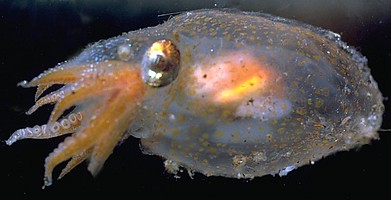
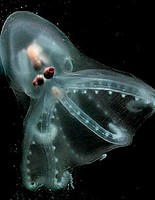
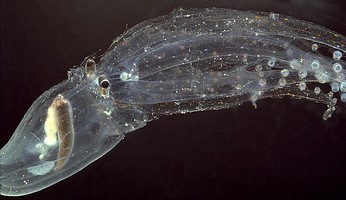






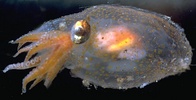

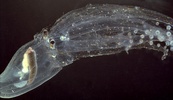

 Go to quick links
Go to quick search
Go to navigation for this section of the ToL site
Go to detailed links for the ToL site
Go to quick links
Go to quick search
Go to navigation for this section of the ToL site
Go to detailed links for the ToL site